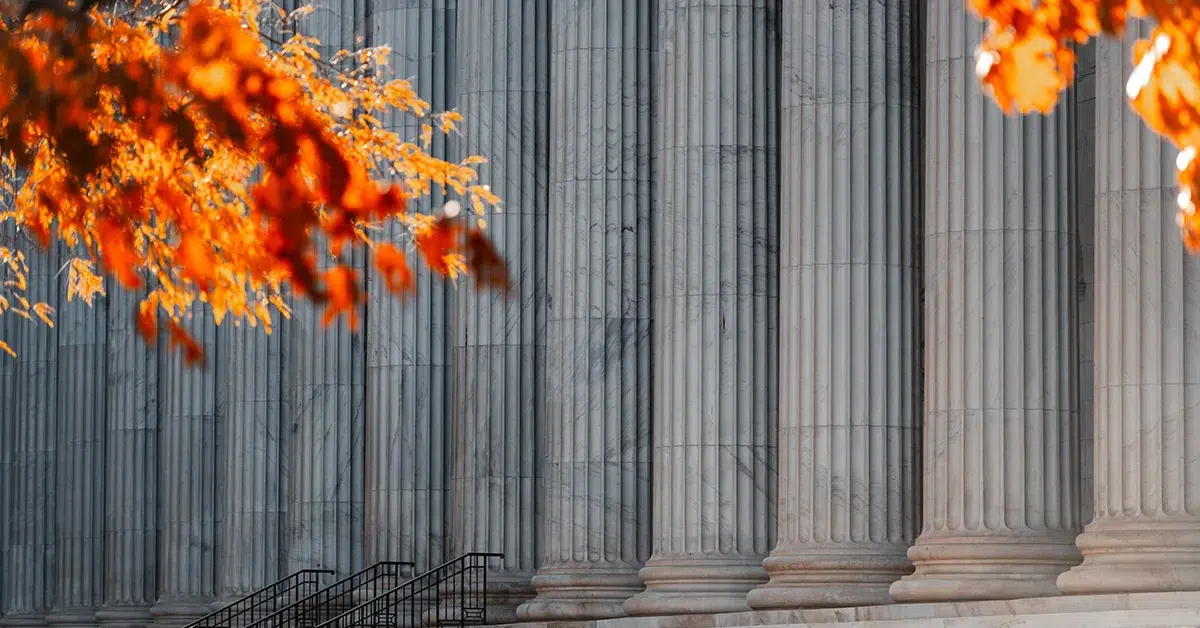In the past, the most common reason for a prosecution motion to continue a jury trial was prosecution witness problems. But an unavailable witness does not always present good cause for a continuance. And if a criminal trial is continued beyond the statutory period, over the defendant’s objection, and without good cause, the defendant’s statutory speedy trial rights have been violated. In such a case, in order to seek a dismissal the defendant must file a motion to dismiss at the earliest available opportunity after the violation has occurred. That means the defendant’s motion should be filed the morning after the very last day within the statutory period.
Penal Code section 1382 sets forth the deadlines in which a defendant in a criminal case must be brought to trial. (Section 1382 contains several rules and exceptions, so I only recite a few here.) For an out-of-custody misdemeanor defendant, for example, where no time waiver is entered, the defendant must be brought to trial within 45 days of the arraignment. If the case is a felony, and it is past the preliminary hearing stage, the prosecution has 60 days to commence the trial after the defendant is arraigned on the information. If a time waiver was entered, the DA gets 10 additional days (commonly called 10 stat days) past whatever trial date is selected. If the defendant is not brought to trial within the applicable time period, absent good cause, the case must be dismissed.
The first questions in determining whether a defendant’s speedy trial rights were violated is whether the continuance of the trial was over the defendant’s objection, and if so, whether it was based on good cause. (There are a multitude of cases involving implied time waivers, so be aware that being passive is not an option if you are seeking to preserve speedy trial rights.) If witness unavailability was the reason for the prosecution’s continuance request, good cause was established only if the prosecution showed that they “(1) exercised due diligence in an attempt to secure the attendance of the witness at the trial by legal means; (2) that the expected testimony is material; (3) that it is not merely cumulative; (4) that it can be obtained within a reasonable time; and (5) that the facts to which the witness will testify cannot otherwise be proven.” Owens v. Superior Court (1980) 28 Cal.3d 238, 251 (internal quotations omitted).
In Baustert v. Superior Court, (2005) 129 Cal.App.4th 1269, the Court of Appeal held the officer’s vacation did not establish good cause to continue the case past the statutory deadline. The prosecution had unilaterally released the officer from the subpoena prior to obtaining a continuance in court. For that reason, the prosecution did not show that they exercised due diligence in attempting to secure the witness by legal means.
In more recent times, it hasn’t just been witness problems causing the prosecution to seek a continuance, but rather the pandemic itself or the severe case backlog it created. So it is not surprising that the pandemic gave rise to additional litigation in the area of statutory speedy trial rights.
In Stanley v. Superior Court (2020) 50 Cal.App.5th 164, the court found that “the severity of the COVID-19 pandemic and the impact it has had within this state independently support the trial court’s finding of good cause to continue defendant’s trial under Penal Code section 1382.” But no trials were being conducted in any courts within the county at the time.
In Elias v. Superior Court (2022) 78 Cal.App.5th 926, the court found the defendant’s speedy trial rights were not violated because the backlog that caused the delay was a “unique, nonrecurring event,” rather than a “routine or chronic condition.”
Again, in Hernandez-Valenzuela v. Superior Court (2022) 75 Cal.App.5th 1108, the court determined that there was good cause for the trial delays. The court wrote that “the critical inquiry is whether the congestion or backlog is attributable to chronic conditions as opposed to exceptional circumstances considering all of the relevant circumstances.” The pandemic created exceptional circumstances.
In People v. Breceda (2022) 76 Cal.App.5th 71, the defendant was in the middle of trial when the pandemic began. The court refused to declare a mistrial and instead continued the case. The court resumed trial 73 days later, and fully 10 weeks later. The court found good cause for the delay, and no prejudice. The court held that “there was no alternative to delaying the trial.”
And just recently, in Estrada v. Superior Court of City and County of San Francisco (February 28, 2023) — Cal.Rptr.3d —- 2023 WL 2320352, involving two consolidated cases, the petitioners argued that San Francisco courts were not taking effective steps to reduce the delays of criminal trials. One of the cases was continued four months past the last day for trial, and the other case was delayed two months past the last day for trial. Despite the lengthy delays, the Court of Appeal held that the courts are working to reduce the backlog, and found that under those circumstances, the delays did not constitute an abuse of discretion.
If a motion to dismiss for a violation of speedy trial rights is denied, the appropriate vehicle for challenging that denial is a petition for writ of mandate or prohibition in the appellate court. In a misdemeanor case, that writ petition should be filed in the superior court appellate division within 30 days. In a felony, the writ petition would be filed in the Court of Appeal within 60 days.
Be aware that an appellate court does not have to hear a writ. The difference between writs and appeals is that writ review is discretionary while an appeal is a statutory right (in other words, if filed within the specified time period, and if the order or judgment is appealable, the appellate court has no choice but to rule on an appeal on its merits). Also be aware that one of the hardest parts of doing writ work is securing the record. The appellate court can always summarily deny a writ petition (not hear it on its merits). The appellate court can also deny a writ petition solely because an adequate record has not been provided. So it is wise to be more inclusive than not. Get the complaint, the docket with court minutes from every proceeding, all briefs filed in the matter, and the transcript of oral proceedings – pretty much everything – and lodge it with the appellate court. If the court decides to hear the matter, the court would normally seek a response (sometimes called an “answer”) from the prosecution (in a writ proceeding, they are called the “real party in interest” and the superior court is the “respondent”). The petitioner is then given the opportunity to reply (sometimes called a “traverse”) before the appellate court decides the matter.
In Riverside County, nearly two thousand cases have been dismissed due to the pandemic backlog and the resulting violations of the defendants’ speedy trial rights. And word is that there are still a couple thousand remaining to be tried. There are not enough judges, not enough courtrooms, and not enough prosecutors to try all of the cases before the last statutory day. Law enforcement, including the DA, appears to blame the bench. The bench seems to blame the state (and sometimes the DA for not settling cases). And defense attorneys usually say it’s the DA’s fault. (There have simply been too many reports of DDAs refusing to settle cases to ignore their role in this.) In the end, I believe it’s a combination of factors. There were too many emergency orders that delayed too many trials, there was poor planning, as well as a lack of available and reasonable dispositions. Is it really justice to have so many (possibly) guilty people go free? Not so much. But a defense attorney has the ethical obligation to pursue a dismissal for their client under those circumstances. And a judge faced with a lack of good cause (no emergency orders extending time), and a lack of resources, has no choice but to dismiss when faced with the law set forth in Penal Code section 1382. The reason is that the problem became chronic and recurring, which the current case authority reveals does not establish good cause to continue a trial. It also does not appear that measures are being taken to effectively deal with the backlog. (We desperately need more Mandatory Settlement Conference courtrooms, which I had suggested last year. Why this didn’t happen I have no idea.) As a side note, it also seems to me there would be a lot of challenges in the appellate courts by the prosecution if those dismissals were erroneous. Another lack of resources problem? Or maybe the law just required the dismissals. Either way, Covid-19 was hazardous to our health and to our criminal justice system.




